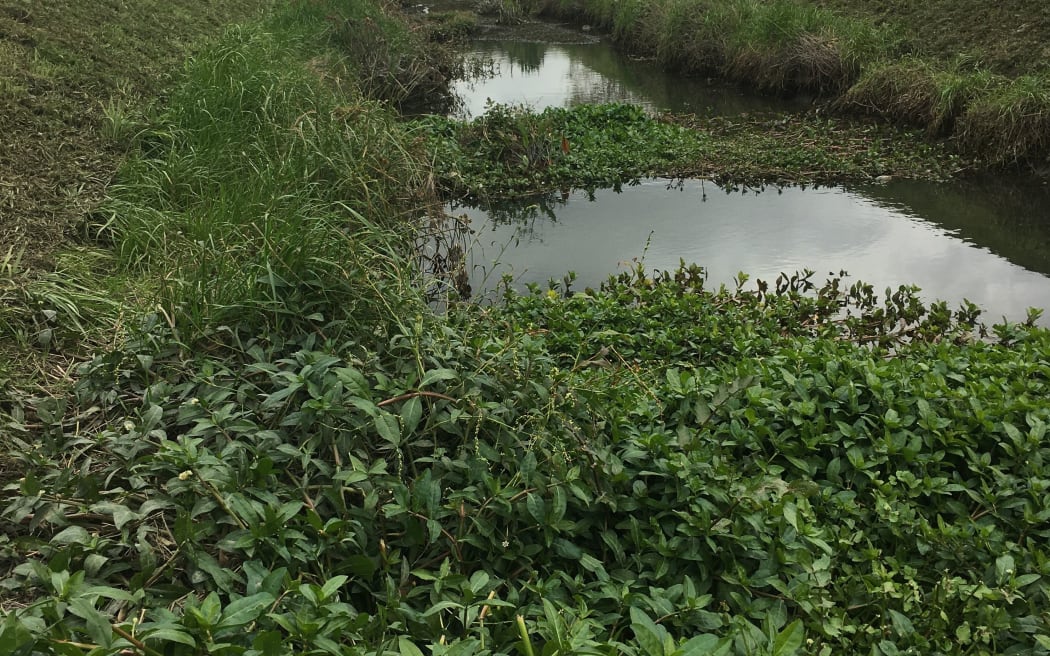
Alligator weed, an invasive pest. Photo: Supplied / Horizons Regional Council
New crops of soybeans, pineapples and rice could be grown in New Zealand as local climates change, a new report proposes.
However, the Global Change and New Zealand Biosecurity report stated other changes would also result in an increased risk of plant-destroying insects, weeds and diseases entering the country.
It was the culmination of a two-year government funded research project to review how things called "global megatrends" could make it harder to stop plant pests and diseases from entering New Zealand.
These trends included sea-level rises forcing changes in shipping trade routes, extreme weather, human movement and international conflict - and they were all likely to result in an increased risk of entry to New Zealand by 'alien' plant pests.
Report project leader Nicolas Meurisse said predicting when any of these things could impact New Zealand was extremely difficult, so systems must be robust, resilient and responsive to new threats as they appear.
"Our main conclusion is that our systems need to remain agile. We need to maintain these things we do, and do quite well, but consider these trends. One being climate change but there are others.
"Like altering trade routes, or commercial imports could come from different countries in the future which would mean we have different pests coming from different parts of the world.
"We certainly need to be aware of these changes and be ready to anticipate them."
Meurisse said one of the most predictable, and impactful, megatrends is rising carbon dioxide levels and resulting warmer climates.
The invasion ecologist said New Zealand was already experiencing the negative impacts of established invasive species. However, future changes in land use and agricultural practices would exacerbate some of these impacts.
Other trends such as climate change and globally increasing pest emergencies and movements would also challenge the ability to prevent future invasions.
"Biological invasions are already a big concern for New Zealand with its unique insular ecosystems and being home to one of the highest proportions of threatened indigenous species in the world," Meurisse said.
"Our economy is also very dependent on our primary sector. We knew global change would bring more challenges so we began to study what these were likely to be and how we can prepare for them."




